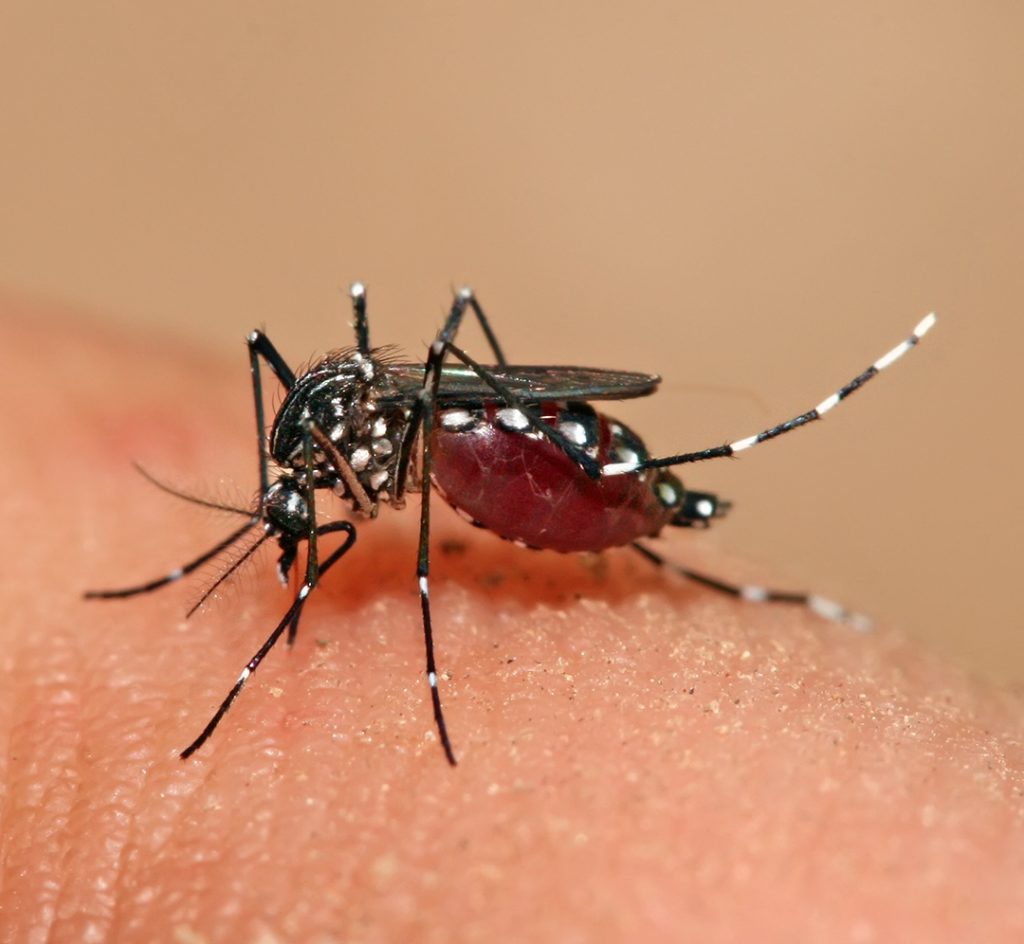A team of researchers from the University of Leuven has announced the discovery of a powerful new antiviral in the fight against dengue fever, a tropical disease.
Dengue fever is caused by a virus carried by mosquitoes, and kills about 40,000 people a year, mainly in Southeast Asia, South Asia and South America. The disease has been known since the 18th century, but its viral nature and spread were only understood in the 20th century.
As many as 390 million people become infected in a year, and half a million require hospital treatment. The more severe cases of the disease tend to be found among babies and small children.
The research, reported in the journal Nature, has been going on for 12 years, involving the university’s Rega Institute, which did pioneering work into the coronavirus, and the Centre for Drug Design and Discovery (CD3), in conjunction with industrial partner Janssen Pharmaceutica.
To date, despite its long history, there have been no drugs developed to fight dengue. The main protection is the body’s own defences, which is why babies and small children are the main fatalities. Patients who are infected and recover develop immunity, but only to the variant they were exposed to, and remain vulnerable to the other four serotypes.
“Patients get severe muscle and joint pain and a high fever,” explained researcher Johan Neyts, virologist at the Rega Institute.
“A few years ago in Vietnam I saw how quickly hospitals fill up during an outbreak. Patients could only be treated with painkillers.”
The solution was to use an ingenious method to stop the virus from growing.
“We showed that our virus inhibitor prevents the interaction between two viral proteins that are part of a kind of copying machine for the genetic material of the virus,” Neyts told De Tijd.
"If you block that interaction, the virus can no longer copy its genetic material and thus cannot produce new virus particles."

Muhammad Mahdi-Kareem/Wikimedia
The research was carried out on mice.
“Even a low, orally-administered dose proved to be highly effective,” Neyts said.
“In addition, the treatment is effective when the infection is already at its peak. In those cases, the number of virus particles in the blood drops drastically in the 24 hours after the start of the treatment.”
The team started their search for a tool to use against the virus in 2009, and called on the resources of the university’s Centre for Drug Design and Discovery – essential a library of 400,000 molecules potentially useful in fighting disease.
“We were looking for a needle in a haystack,” said Neyts. “But once we identified such molecules, the CD3 medicinal chemists could get to work.”

